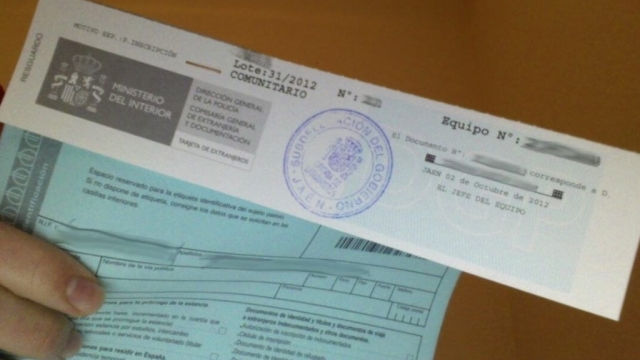Are you planning a move to Spain or considering staying for an extended period of time? If so, then you’ve probably heard about the NIE number, an essential identification document for foreigners in Spain. Whether you’re looking to work, study, or even purchase property in this beautiful country, obtaining your NIE number is a crucial step in navigating the Spanish system. In this comprehensive guide, we will walk you through everything you need to know about the NIE number in Spain, from what it is to how to obtain it. So, let’s dive in and demystify the process!
What is the NIE Number?
Nie ESPAÑA
The NIE Number, also known as the Número de Identificación de Extranjero, is a unique identification number given to both EU and non-EU citizens alike who are living or planning to live in Spain. This number is essential for anyone wanting to legally work, study, open a bank account, purchase a property, or engage in any official transaction within the Spanish system.
The NIE Number acts as a key identifier for foreigners in Spain, allowing authorities to track and monitor individuals’ activities and ensure compliance with various legal requirements. It is issued by the Spanish government and serves as proof of your legal presence in the country.
Obtaining a NIE Number requires submitting the necessary documentation to the appropriate authorities and completing the registration process. It is highly recommended to obtain this number as early as possible to avoid any complications or restrictions during your stay in Spain.
Understanding the significance and process of acquiring a NIE Number is crucial for navigating the Spanish system smoothly and ensuring that you have all the necessary documentation to carry out your desired activities within the country.
Why Do You Need an NIE Number?
An NIE Number in Spain, also known as Número de Identificación de Extranjero, is a unique identification number issued to non-Spanish individuals who reside or conduct official business in Spain. Having an NIE Number is essential for a variety of reasons.
Firstly, if you plan to live and work in Spain, an NIE Number is mandatory. It is required for various bureaucratic procedures such as opening a bank account, signing employment contracts, and enrolling in educational institutions. Without an NIE Number, you may encounter difficulties in completing these essential tasks.
Additionally, an NIE Number is crucial for legal purposes. It serves as your identification when dealing with Spanish authorities, including tax agencies, healthcare providers, and immigration services. When renting or purchasing property, signing contracts, or even registering a vehicle, the NIE Number acts as your official identification, ensuring that your transactions are lawful and valid.
Moreover, an NIE Number is often a prerequisite for accessing public services and benefits in Spain. It enables individuals to register for healthcare coverage, apply for social security benefits, and access other government services. Without an NIE Number, you may face limitations in benefiting from the various entitlements offered by the Spanish system.
In summary, obtaining an NIE Number in Spain is crucial for navigating the Spanish system effectively. Whether you plan to live, work, or engage in official matters within the country, having an NIE Number is not only required but also provides you with the necessary identification to ensure a smooth and lawful experience.
How to Get Your NIE Number
To obtain your NIE Number in Spain, you will need to follow specific steps outlined by the authorities. Here’s a simple guide to help you navigate the process:
Schedule an appointment: The first step is to schedule an appointment at the local Foreigner’s Office (Oficina de Extranjería) or police station (Comisaría). Be aware that availability may vary depending on the region, so it’s advisable to book your appointment in advance.
Gather the necessary documentation: Before your appointment, make sure to gather all the required documents. Typically, you’ll need your valid passport, completed NIE application form (Modelo EX-15 or EX-18), and a copy of each document.

Visit the designated office: On the assigned date and time, visit the designated office where you have your appointment. Present your documents to the staff, who will verify your information and process your application. Depending on the office, you may also need to pay a fee for the NIE processing.
Remember, it’s crucial to double-check the specific requirements and procedures with the local authorities, as they may vary slightly from region to region. By following these steps, you’ll be on your way to obtaining your NIE Number in Spain smoothly and efficiently.

